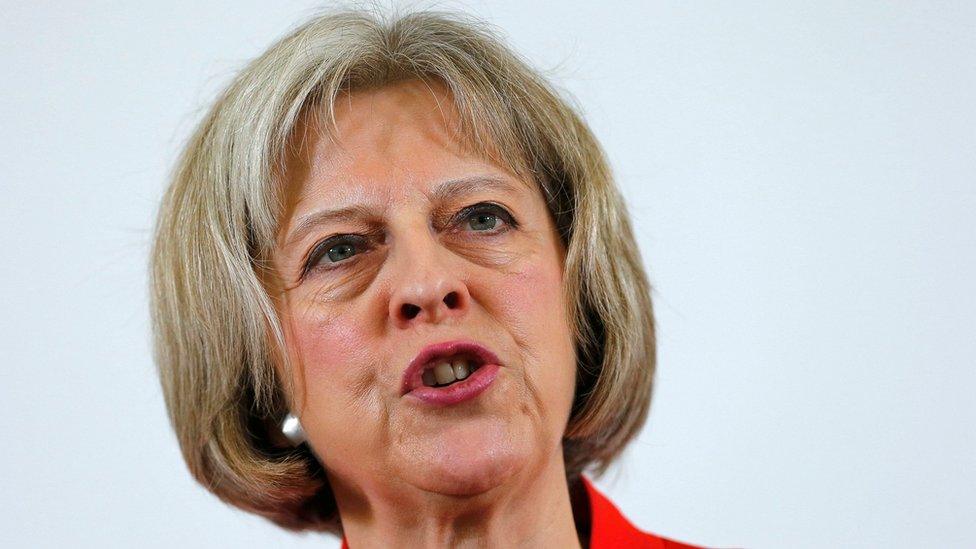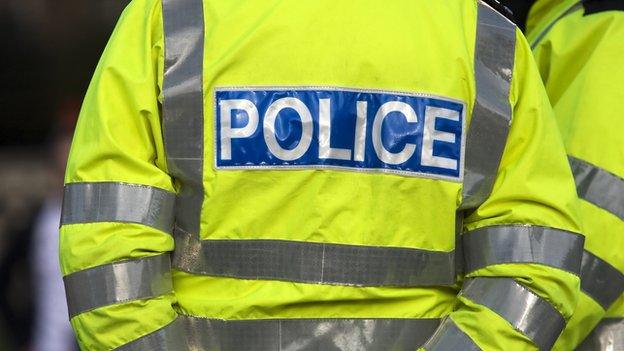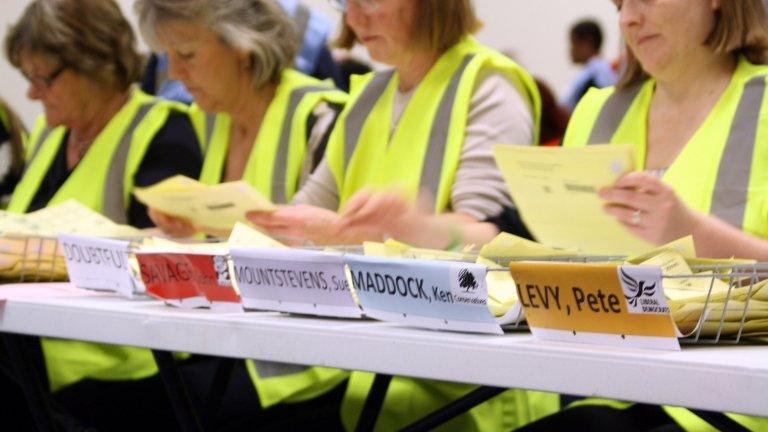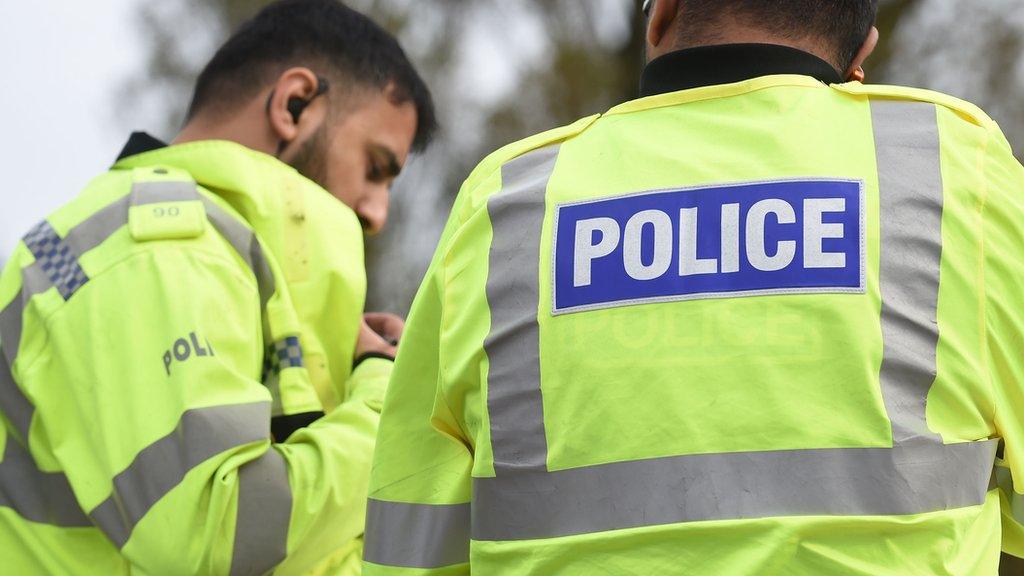Theresa May feared creating police commissioner 'monster'
- Published

Home Secretary Theresa May has admitted fearing she had created a "monster" by setting up police and crime commissioners in England and Wales.
She said a number of incidents had given PCCs a "bad name", including criticism by Surrey's Kevin Hurley of his former chief constable Lynne Owens.
But she also revealed she was planning to extend the powers of PCCs after their elections in May.
This could include them setting up free schools for "troubled children".
PCCs, who replaced the previous model of police authorities, have powers to hire and fire chief constables and set police strategy and budgets.
They were first elected in November 2012 on a historically low turnout, and the next set of elections takes place in May.
'Disappointing'
At a Policy Exchange event in London, Mrs May acknowledged some of the problems involving PCCs had made her wonder if she had done the right thing by establishing the system as a replacement for police authorities.
She said: "In 2012, you could be forgiven for thinking that we were creating a monster. And I'd be lying if I said there weren't times over the last three and a half years when I thought we might have done just that."
She highlighted incidents including the former South Yorkshire PCC Shaun Wright's initial refusal to resign following damning revelations of child sexual abuse in Rotherham; the appointment of a youth commissioner in Kent with no background checks, only for her to have to stand down after it was revealed she had posted offensive tweets as a teenager; and the dispute involving Mr Hurley.
The BBC recently learned Mr Hurley had strongly criticised his chief constable Lynne Owens before her appointment as the new National Crime Agency head.
"These episodes have been disappointing and there's no doubt that some of them have brought the office of the PCC into disrepute," said Mrs May.
Mayoral merger
Labour has said it would abolish PCCs and put the savings into front-line policing.
But Mrs May proposed an expansion of their role. She said the government had not yet decided the "full extent" of its proposed changes but said there were "significant" opportunities for reform.
"The next set of PCCs should bring together the two great reforms of the last Parliament - police reform and school reform - to work with and possibly set up alternative-provision free schools to support troubled children and prevent them from falling into a life of crime," she said.
The home secretary suggested mergers between PCCs and directly elected mayors, saying there was a "fantastic opportunity" for policing and other services to be brought together "under a single directly elected mayor".
PCCs could also have a role in youth justice, probation and court services, she said.
This suggestion was welcomed by the Institute for Public Policy Research, which said it "makes sense" to give locally elected leaders control over the services.
The think tank's Jonathan Clifton said: "This will enable them to join up with other local services and tackle the things that lead to offending - such as lack of qualifications, mental health problems and homelessness."
- Published3 November 2015

- Published17 November 2012

- Published21 April 2016
